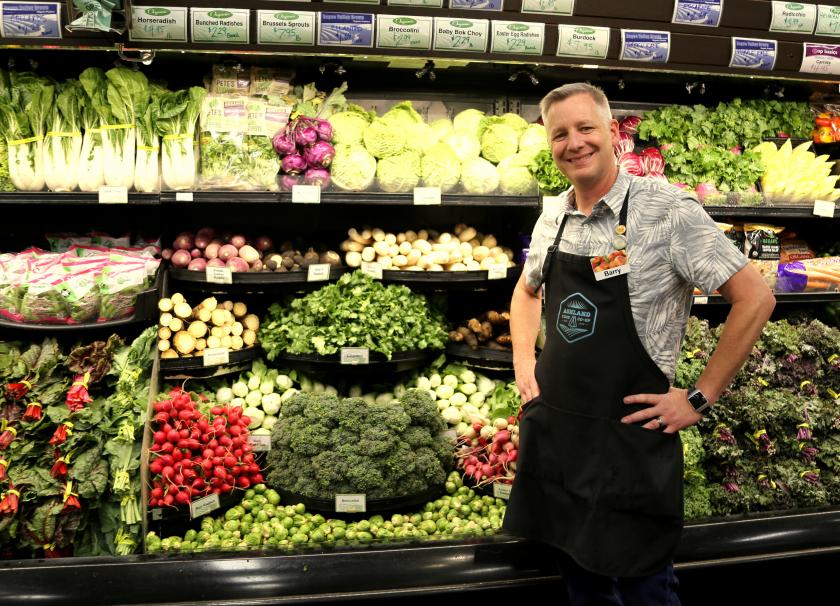
The Co-op is Certified Organic! What does that mean?
By Barry Haynes, Store Manager
Did you know that the Ashland Food Co-op is the only Certified Organic Retailer in southern Oregon. Well, that’s great! But what does that actually mean?
Though it sounds like it implies that all of the products we offer are certified organic, in actuality, it’s more about ensuring that the integrity of our certified organic products is maintained from the moment it enters our doors to the moment it leaves. In other words, you can be assured that the organic coffee you bought has stayed clean and clear of non-organic ingredients or contaminants during its stay at the Co-op. “Organic to the last drop!”
As a retailer, the Co-op is not required but we choose to be inspected by a USDA accredited, third party certifier every year.
We do this to verify that we are in compliance with the USDA’s National Organic Program and maintain our Organic Certification. Our third party certifier, Oregon Tilth, has been an integral part of the organic movement for forty years and does much more than inspection and certification. Tilth provides resources for farmers interested in switching to organic production, environmental conservation on the farm, farm viability and even a farmer mentorship program. It also publishes “In Good Tilth”, a seasonal magazine that tells positive stories about the organic trade. Pick up a copy at the Co-op or read it online at tilth.org.
During our annual inspection, we are required to provide organic certificates for all of the organic products we offer in every department of our Co-op. We also have to demonstrate that we have procedures and training in place to ensure that there is no commingling of organic and non organic products during receiving, storage, processing and merchandising. For instance, we would never display non organic produce above organic produce in our wet vegetable displays.
Any water dripping from non organic produce could contaminate the organic produce below. Another example would be in our Meat and Seafood department, where we cut and package all of our organic chicken before we process the natural chicken. All of these steps are very important to ensure organic integrity.
Imagine a store without these procedures in place. They could be preparing non organic product on the same surface as organic. This would obviously compromise the integrity of the organic product.
In addition to reviewing paperwork and procedures, our inspector conducts an in and out audit. This audit reviews the volume of organic products that we have sold and compares those figures to our purchases of those products. This type of audit ensures that a business hasn’t sold non organic products as organic.
This comprehensive inspection process usually takes about seven hours. After the inspection has been completed, the inspector presents their findings to one of Oregon Tilth’s inspection reviewers. Once the review has taken place and they are confident that they have received all of the information they require, a decision on certification is made. We’ve been having voluntary inspections since 2008—and have passed all of them!
Why does the Co-op choose to go through this process when there is no requirement to do so? We want our customers to have confidence that when they choose organic products at the Co-op, we have done everything we can to ensure the integrity of that organic product. This is just one of the ways we let our shoppers know that we try to stay true to our Product Philosophy and they can continue to trust the high standards the Co-op sets for itself and for the health of the community.
More Co-op News
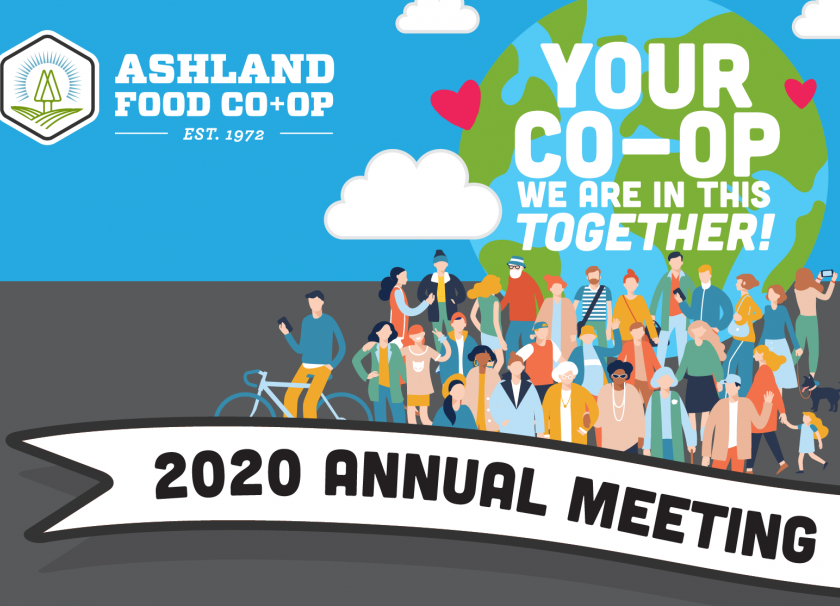
2020 Annual Meeting for Owners
Mark the evening of May 13 at 5pm on your calendar and join us for the 2020 AFC Annual Meeting. We’ll host the meeting online using Google Hangouts. Please click here to join the meeting, or call in at this number:
+1 617-675-4444
PIN: 719 680 293 2056#
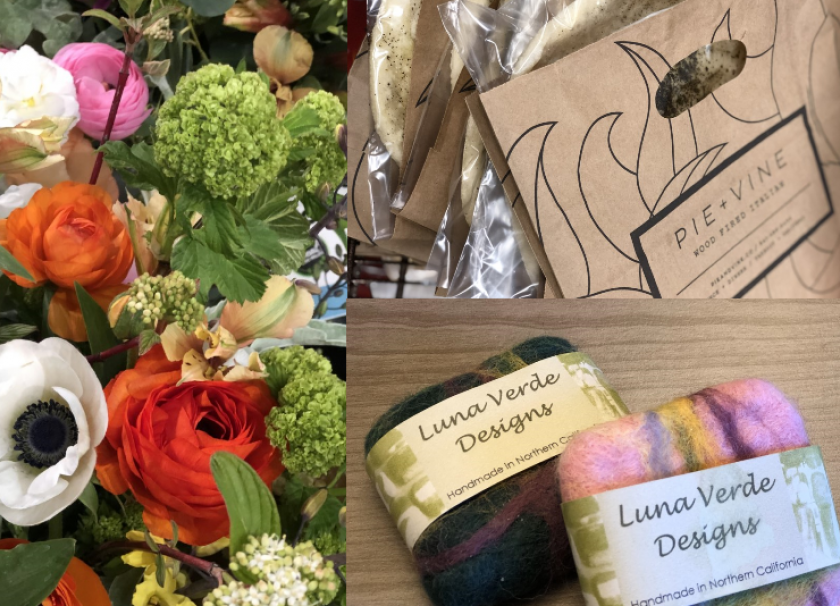
A dozen local favorites to explore this summer
The Co-op has always had a focus on supporting the strong local scene of growers and producers - and in these times, it's even more important. Here is just a small selection of some of our favorites from the area. Help support local businesses next time you stop by the Co-op by picking one of these products.

Unwavering Spirit in a Time of Change
By Emile Amarotico, General Manager
It’s been two months since my last update on our Co-op community, but it could just as well have been two years ago, or from an alternate reality! Needless to say, life at the Co-op has changed, and it hasn’t been easy for employees or shoppers. But despite the challenges, it has been an inspiring and reaffirming time that reminds us why we love the cooperative enterprise.
Staying Sustainable in A Changing World
By Rianna Koppel, Sustainability Coordinator
In the midst of a health crisis, how can we focus on sustainability? Let’s be real - these are tough times!
What does sustainability look like now? I like to refer to the definition of sustainability - meeting the needs of the present without compromising the ability of future generations to meet their needs. How can we meet the needs of the present, while keeping the future in mind?
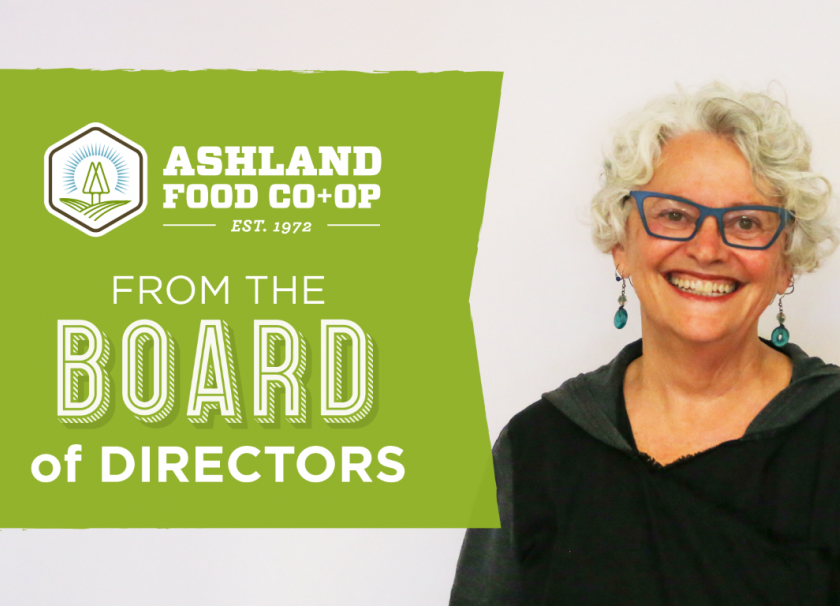
Democracy and Co-ops
By Annie Hoy, Board Director
This month, AFC Owners will democratically elect a slate of board candidates. These candidates are co-op owners, just like you and me. By holding annual elections, co-ops around the world and close to home are expressing Cooperative Principle 2: Democratic Member Control.
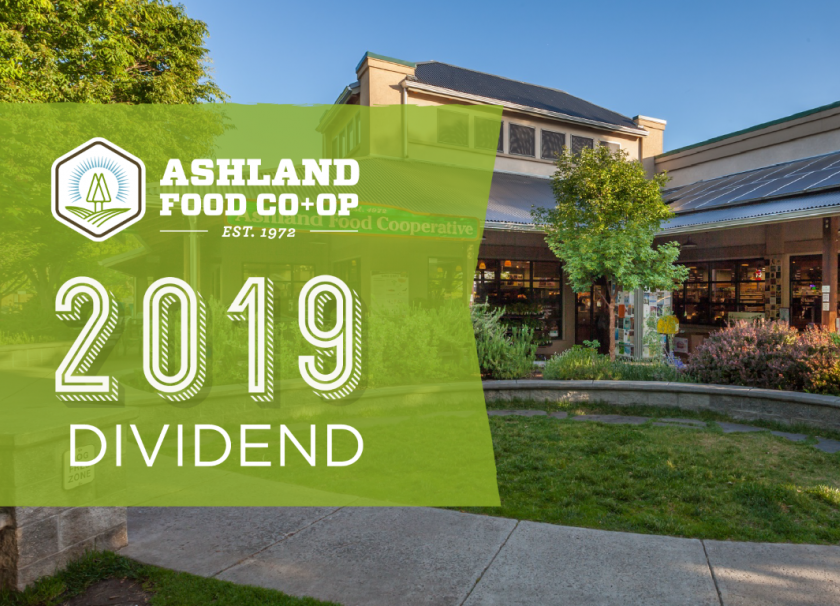
2019 Patronage Dividends are available now
From the Board of Directors:
This year, the Co-op Board of Directors is taking unprecedented action to distribute 100% of the over $628,000 2019 Patronage Dividend to our owners. In this time of great need, there is no holding back. This is not the moment to put away funds for the future, but rather to support our owners fully so that we may all have more strength to weather the storm.
Beans from Scratch
Michelle isn't serving up samples right now, so she's serving up kitchen tips instead! Here's her tried and true approach to cooking dry beans, plus some extra tips for upping your flavor, saving time, and cook other legumes. (Ingredients and modifications are below the video.)
Ingredients
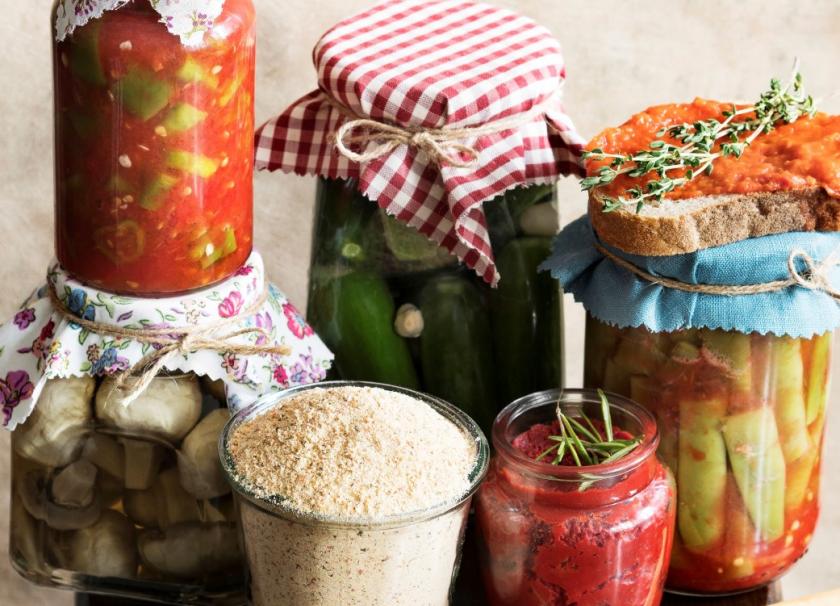
Tips to Stay Safe and Limit Waste
By Mahlea Rasmussen, Education Coordinator
Inspired by Bea Johnson's Zero Waste Home
We are in uncertain times and some of you may be second-guessing some of your zero waste practices and replacing them with safety measures for you and your family. I was proud not to have chemical cleaners in my home and never used plastic gloves - but now those products are being suggested for staying clean and safe. Here are some tips to keep your home safe while working towards more sustainability.

Ashland Food Co-op employees are heroes, worthy of respect and gratitude
Until a crisis like this occurs, few think of Grocers as essential service providers. However, our employees have been here day in and day out, risking their health and the safety of their loved ones, to provide food for our community. This is not a job that can be done from home or from what is now considered a safe social distance. Our employees have worked with the utmost professionalism, care, and concern for shopper well-being.
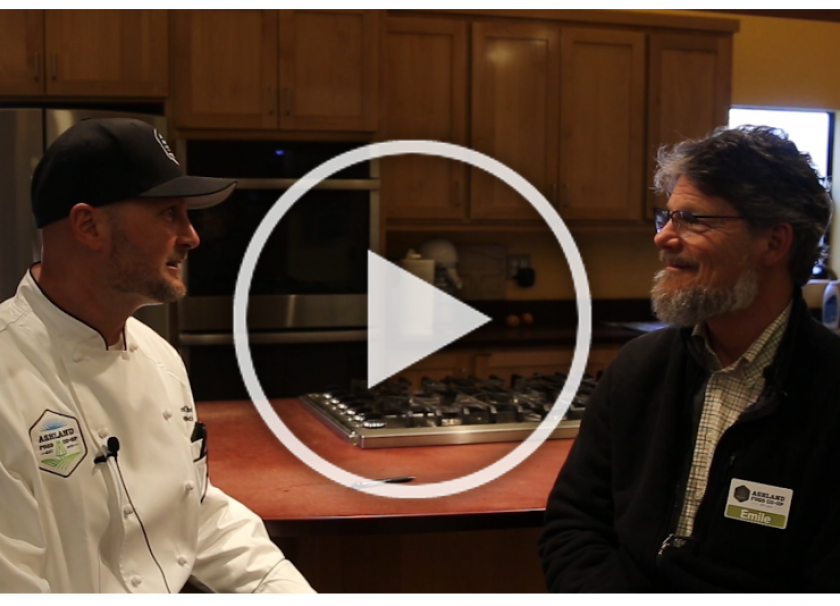
Meet Reagan Roach, AFC Executive Chef & Prepared Foods Manager
The Co-op's general manager, Emile Amorotico, sat down with the newest addition to the co-op's management team, Reagan Roach. Get to know Reagan in the interview below - and say hi when you see him in store!
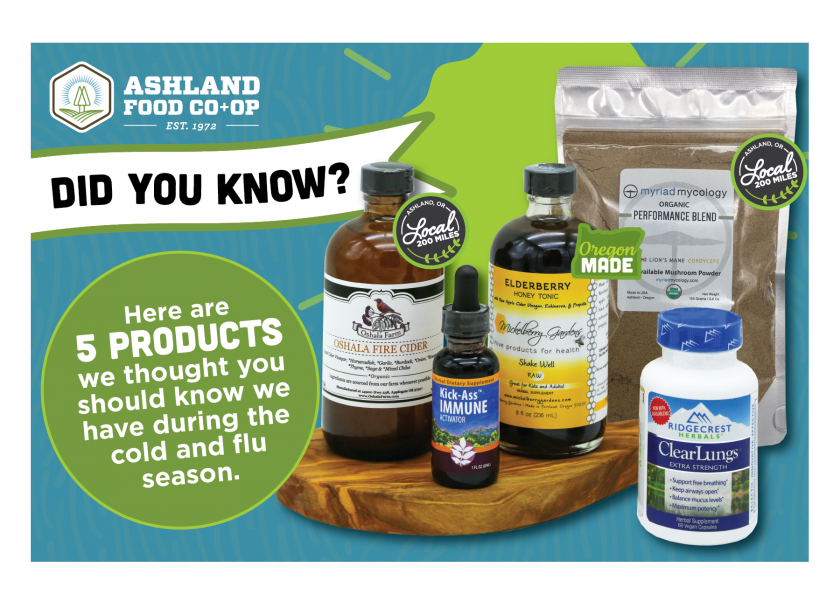
5 Things You Didn't Know the Co-op Carries for Cold, Flu & Immune Protection
- Wishgarden Herbs - Kick Ass Immune: Your total frontline immune defense!
- Oshala Farm - Oshala Fire Cider: Locally made in the Applegate. It tastes so good you could craft a healthy dressing with this fire cider!
- Mickelberry Gardens - Elderberry: Great Immune support for kids and adults. Made in Oregon.
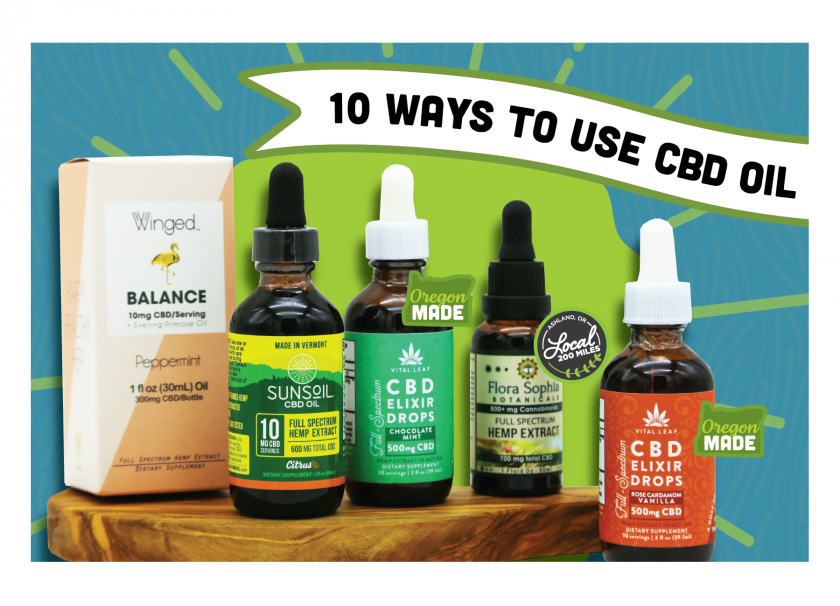
Choose To Reuse
by Rianna Koppel, Co-op Sustainability Coordinator
At the Ashland Food Co-op, we are committed to becoming Zero Waste by 2030. Along the way, we’ve learned a lot about packaging and single-use at our store. Our owners care deeply about reducing plastic waste, and we do too!
Reusable Bags
At the co-op, we have many different bag options… So what's the best choice?
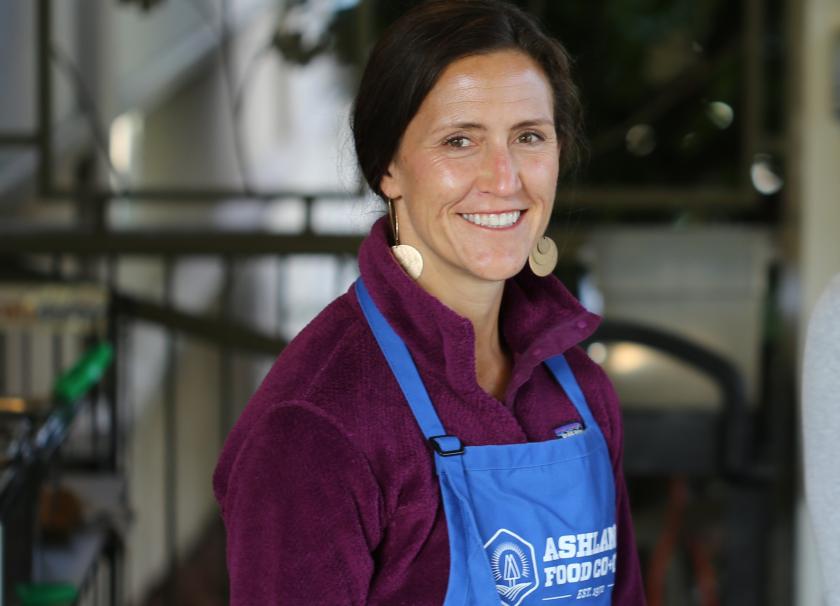
Lisa Beam: Why I'm a Board Member
Why serve on the Board of Directors at the Ashland Food Coop? This was the question that I was faced with about a year ago.
I have lived, worked and shopped in Ashland for the last 20 years. Many of those years I have actively participated on non-profit boards, civic organizations and committees. However, in the last few years I stepped away from those responsibilities to focus on family and business life.
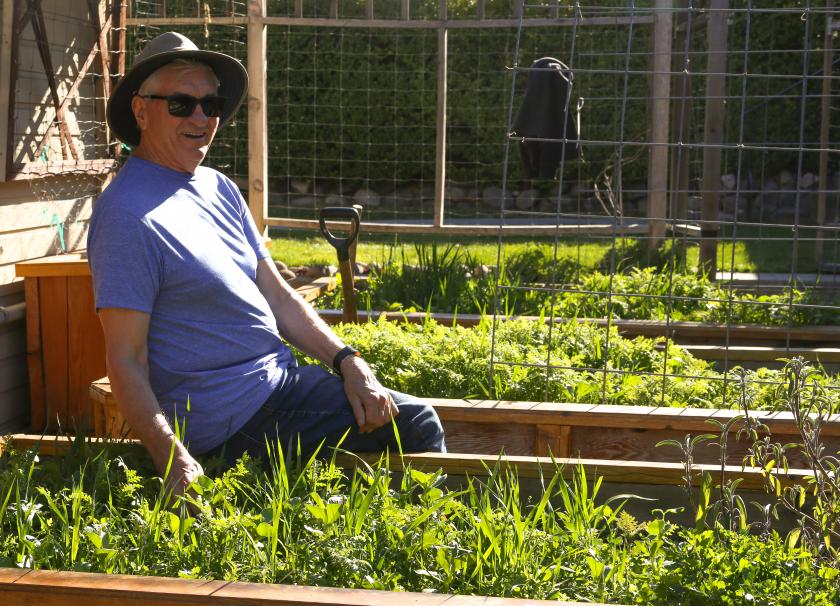
Henry in the Garden: The Pollinator Plan
By Henry Herting, Co-op garden volunteer
It's that fun time of the year when we get to plan our gardens. This year since our pollinators are taking such a hard hit, we are planning a pollinator garden.
Some plants that are considered good for pollinators are not so good fo the gardeners. They are invasive; they are weeds. Nobody likes weeds in their garden - who likes getting down on their knee pads and clawing at deep-rooted weeds growing in places where you don't want them?
